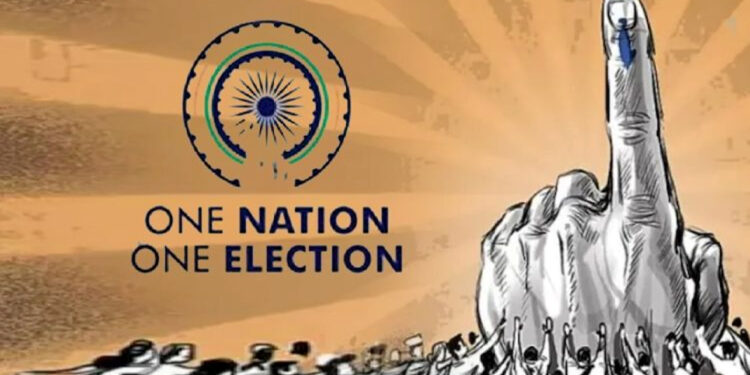Lagatar24 Desk
New Delhi: The Union Cabinet, under the leadership of Prime Minister Narendra Modi, has given the green light to the “One Nation, One Election” proposal, based on the recommendations of a high-level committee chaired by former President Ram Nath Kovind. The initiative, aimed at holding simultaneous elections across the country, marks a significant step towards overhauling India’s electoral process.
The committee, established in September 2023, submitted a comprehensive report earlier this year, comprising 18,626 pages. The report is a result of extensive consultations with experts, stakeholders, and 191 days of research. The approval of this plan comes just a day after Union Home Minister Amit Shah confirmed the government’s intention to implement “One Nation, One Election” within the next five years during the tenure of Modi’s government.
Shah’s Statement and Modi’s Call
Addressing the press on Tuesday, Home Minister Amit Shah reiterated that the government plans to enforce the policy within this term. “The government is committed to ensuring that ‘One Nation, One Poll’ becomes a reality, enhancing efficiency in governance and reducing election-related disruptions,” he said.
In his Independence Day speech last month, Prime Minister Modi also underscored the importance of this initiative. “The country must unite for ‘One Nation, One Election’ to accelerate development and eliminate frequent elections that hinder progress,” he said, urging political parties to support the proposal for the betterment of the nation.
Support and Opposition
The move has garnered support from allies like the Janata Dal (United) and the Lok Janshakti Party. JDU’s working president Sanjay Jha voiced his backing, stating, “JDU fully supports the ‘One Nation, One Election’ plan. This will not only free the country from frequent elections but also allow the Centre to focus on long-term, stable policies and reforms.”
However, the initiative has faced resistance from opposition parties, with critics arguing that it undermines federalism and poses logistical challenges.








